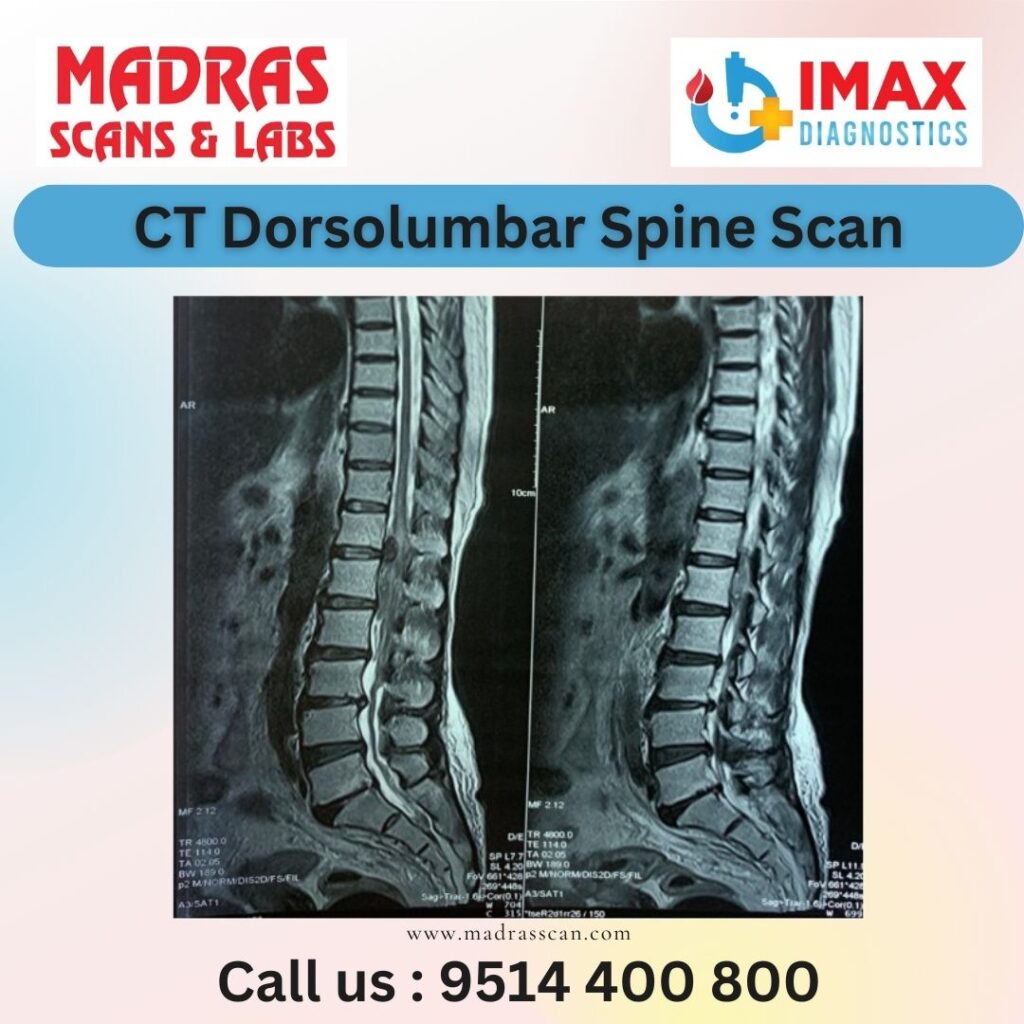CT Dorsolumbar Spine Scan procedure and benifits

A CT (computed tomography) scan of the dorsolumbar spine is a medical imaging procedure that uses specialized X-ray equipment and computer technology to create detailed cross-sectional images of the spine. The dorsolumbar spine refers to the portion of the spine that includes the thoracic (dorsal) and lumbar regions.
Here’s an overview of the procedure and its benefits:
Procedure:
Preparation:
- You may be asked to change into a hospital gown.
- Remove metal objects like jewelry or accessories.
- You might need to fast for a few hours, especially if contrast dye is used
Positioning:
- You’ll lie on a table that slides into the CT scanner.
- The technologist will ensure proper positioning for accurate imaging.
Contrast Injection (if needed):
- In some cases, a contrast dye may be injected to enhance visibility of certain structures.
- This is often done through an intravenous (IV) line.
Scanning:
- The CT scanner will rotate around you, taking X-ray images from different angles.
- You’ll need to remain still during the scan to avoid blurring the images.
Duration:
- The procedure is relatively quick, usually lasting 15-30 minutes.
Benefits:
Detailed Imaging:
- CT scans provide highly detailed images of the bones, joints, and soft tissues in the dorsolumbar spine.
- They are particularly useful for detecting fractures, tumors, infections, or other abnormalities.
Diagnosis and Treatment Planning:
- Helps in diagnosing conditions like herniated discs, spinal stenosis, and spinal deformities.
- Guides physicians in planning appropriate treatment strategies.
Visualization of Soft Tissues:
- CT scans can visualize soft tissues, such as nerves and spinal cord, along with bones.
- Useful for identifying compression on nerves or spinal cord.
Quick and Non-Invasive:
- CT scans are faster than some other imaging methods.
- It’s a non-invasive procedure, avoiding the need for surgery to visualize internal structures.
Assessment of Trauma:
- Commonly used in cases of trauma to assess injuries to the spine, such as fractures or dislocations.
Monitoring Disease Progression:
- Useful for monitoring the progression of degenerative diseases affecting the spine.
It’s important to note that while CT scans provide detailed images, they also expose the patient to ionizing radiation. The decision to undergo a CT scan should be made based on the potential benefits for diagnosis and treatment, weighed against the risks associated with radiation exposure.
For a doing painless CT-Dorsolumber Spine Scan in Chennai, consider Madras Scans & Labs as your go-to destination. It is the most trusted Scan center in Chennai with its exceptional and secure diagnostic services at an affordable pricing system.
Give us a quick call at 9514400800 or visit us at https://www.madrasscan.in to know more about other scans and our attractive price package.
